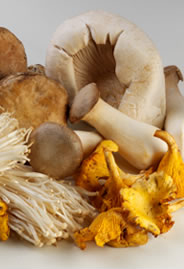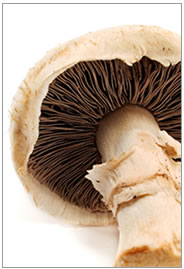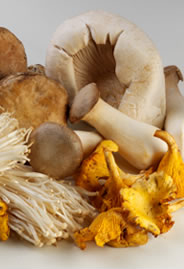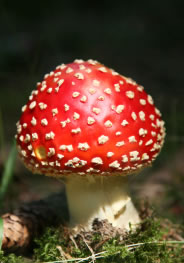A fungus is a special type of microbe – it doesn’t make its own food from the sun like plants, instead it gets its food from dead and decaying plants and animals. You find fungi in damp, warm places, but also in the air, soil, water, on plants and in you! Most fungi aren’t dangerous; in fact most people eat fungi like mushrooms and yeast every day.

Fungi grow everywhere! They cannot make food by themselves so they have to have to get their nutrients from other organisms. They grow on lots of different hosts, anywhere that is warm and damp. Fungi can’t move around so they make spores that are like seeds. Spores fly away on the breeze or in water, on animals or clothing and find a new place to grow that has everything they need. If they can’t find one, they just hibernate - they sleep until the right place comes along!

There are lots of good fungi but they can look a lot like bad fungi so you must be careful! Fungi can be good to eat, like some mushrooms or foods made from yeast, like bread or soy sauce. Moulds from fungi are used to make cheeses like Cashel blue or Roquefort! Scientists use fungi to make antibiotics, which doctors sometimes use to treat bacterial infections. Fungi also help to decompose lots of different organic material, from leaves to insects!

Bad fungi are really bad! Some mushrooms can make you sick, even though they look safe to eat. There are fungi that love to make horrible itchy, scaly patches on your skin. Other fungi love the warm, damp skin between your toes and make your skin crack and bleed! If fungi get inside your body, they can cause serious problems. Fungi love animals and plants too - lots of crops are damaged every year because fungi have attacked them!

| Bacteria | Viruses | Fungi | Parasites |